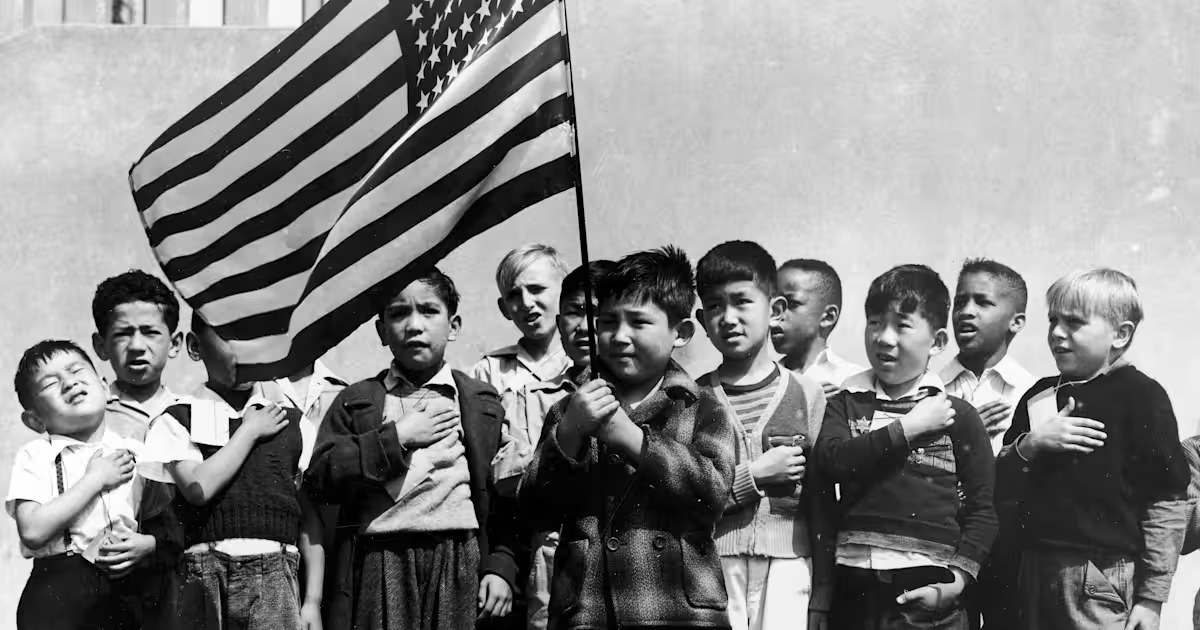Birthright Citizenship: The Right of the Soil and the Right of the Blood

Birthright citizenship is the principle that anyone born on U.S. soil is automatically a citizen, regardless of their parents' status, with limited exceptions.
The Dive
Birthright citizenship comes in two main forms: jus soli, or 'right of the soil,' and jus sanguinis, or 'right of blood.' Jus soli grants citizenship to anyone born within a country’s territory, while jus sanguinis grants it based on a parent’s citizenship. The United States uses both—but its jus soli is one of the most unrestricted in the world, meaning nearly everyone born here is automatically a citizen.
The Fourteenth Amendment, ratified in 1868 after the Civil War, was a direct response to the Supreme Court’s Dred Scott decision, which had denied citizenship to African Americans. Its Citizenship Clause declared that all persons born or naturalized in the United States and subject to its jurisdiction are citizens. This was meant to ensure no group living under U.S. law could be excluded from the rights and protections of citizenship based on race or ancestry.
One of the most important tests of this principle came in 1898 with United States v. Wong Kim Ark. Wong was born in San Francisco to Chinese immigrant parents who were not U.S. citizens. When he returned from a trip to China, officials tried to block his entry under the Chinese Exclusion Act. The Supreme Court ruled in his favor, stating that the Fourteenth Amendment guaranteed his citizenship, regardless of his parents’ nationality or immigration status.
Historically, not everyone born in the United States was recognized as a citizen. Native Americans, for example, were excluded from birthright citizenship under the Fourteenth Amendment due to their recognized sovereignty as members of distinct political nations. It wasn’t until the Indian Citizenship Act of 1924 that all Native Americans born within U.S. borders were granted citizenship.
There are limits to jus soli in the United States. Children of foreign diplomats, enemy soldiers during wartime occupations, or individuals born in certain unincorporated U.S. territories like American Samoa (without congressional action) are not automatically citizens. These exceptions stem from the idea that such individuals are not 'subject to the jurisdiction' of the United States in the same way as residents.
Efforts to challenge or restrict birthright citizenship have surfaced periodically, especially targeting the children of undocumented immigrants. However, because it is protected by the Constitution, ending it would require either a constitutional amendment—an extremely difficult process—or a dramatic reinterpretation by the Supreme Court, which would overturn more than a century of legal precedent.
Birthright citizenship plays a major role in defining what it means to be American. It ensures that citizenship is not a privilege reserved for certain racial, ethnic, or economic groups, but a shared status that unites people from many backgrounds. In this way, it’s not just a legal concept—it’s a statement about national identity and equality under the law.
Why It Matters
Birthright citizenship isn’t just a bureaucratic detail—it’s a cornerstone of democratic equality. By guaranteeing that anyone born on U.S. soil is a citizen, it prevents the creation of a permanent underclass of people living under American laws without American rights. It reflects a belief in inclusive belonging over inherited privilege and protects against the politicization of who 'counts' as an American.
?
How did United States v. Wong Kim Ark shape the interpretation of the Fourteenth Amendment?
Why do some political movements want to restrict birthright citizenship, and what would be the legal challenges to doing so?
How does birthright citizenship differ between the U.S. and other countries?
What are the potential consequences if birthright citizenship were abolished or restricted?
How does the principle of jus soli reflect the values—or contradictions—of American democracy?
Dig Deeper
Americans don’t agree on whether being born here should make you a citizen. That’s not new.
Related

The Great Society: Government as a Force for Good
The Great Society wasn’t just a policy agenda, it was a radical vision of what America could be. With sweeping reforms in health care, education, civil rights, immigration, and the environment, President Johnson’s plan aimed to eliminate poverty and racial injustice once and for all.

Building a New Nation: Foundations of State and National Government
From the shaky Articles of Confederation to the Constitution and Bill of Rights, discover how America’s founders navigated the turbulent waters of self-government—and why North Carolina took its time joining the party.

The Haudenosaunee Confederacy: Indigenous Roots of American Democracy
Long before the Founding Fathers gathered in Philadelphia, a league of Native Nations had already established one of the world’s oldest participatory democracies—an Indigenous blueprint for unity, peace, and governance.
Further Reading
Stay curious!
